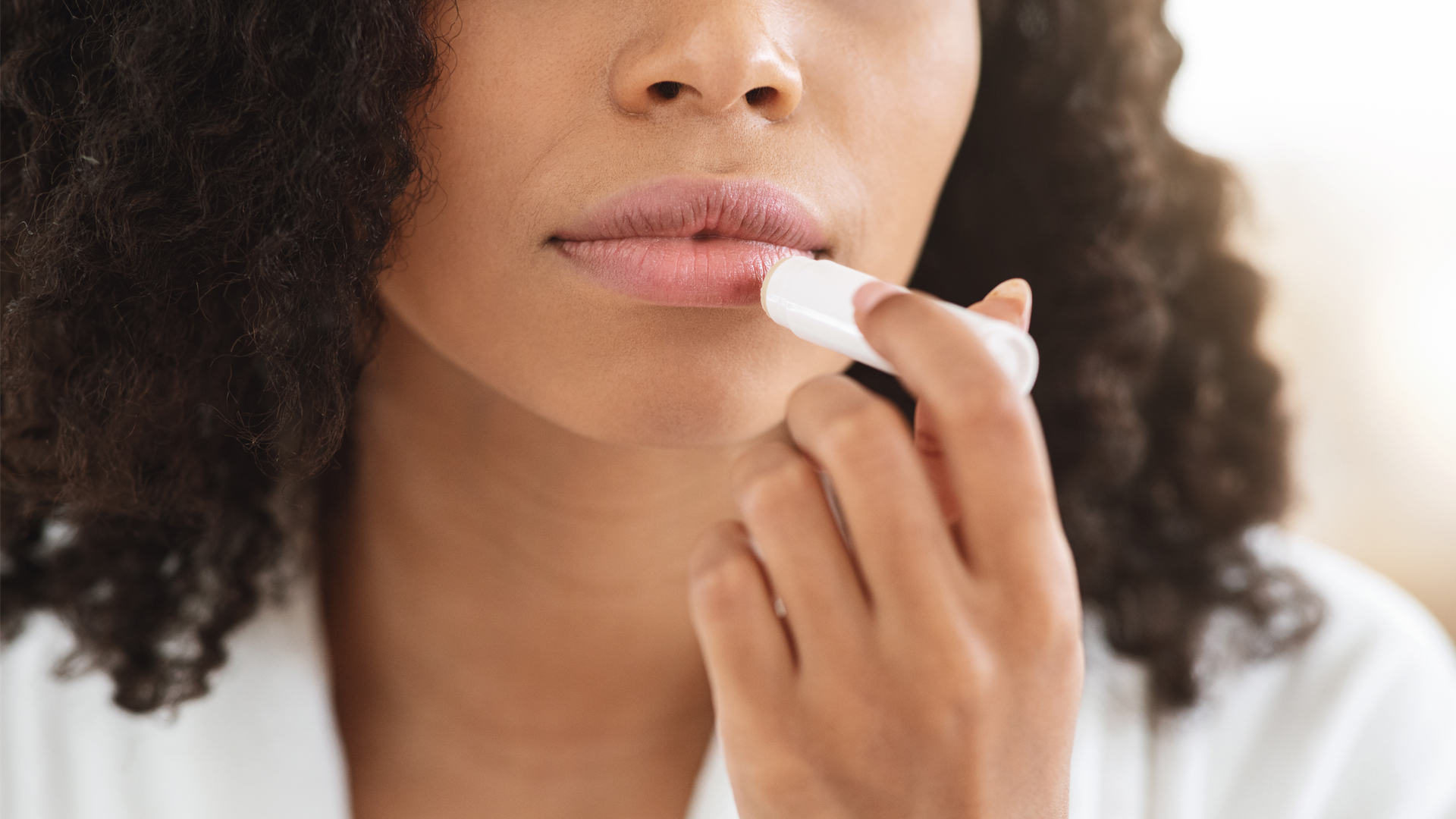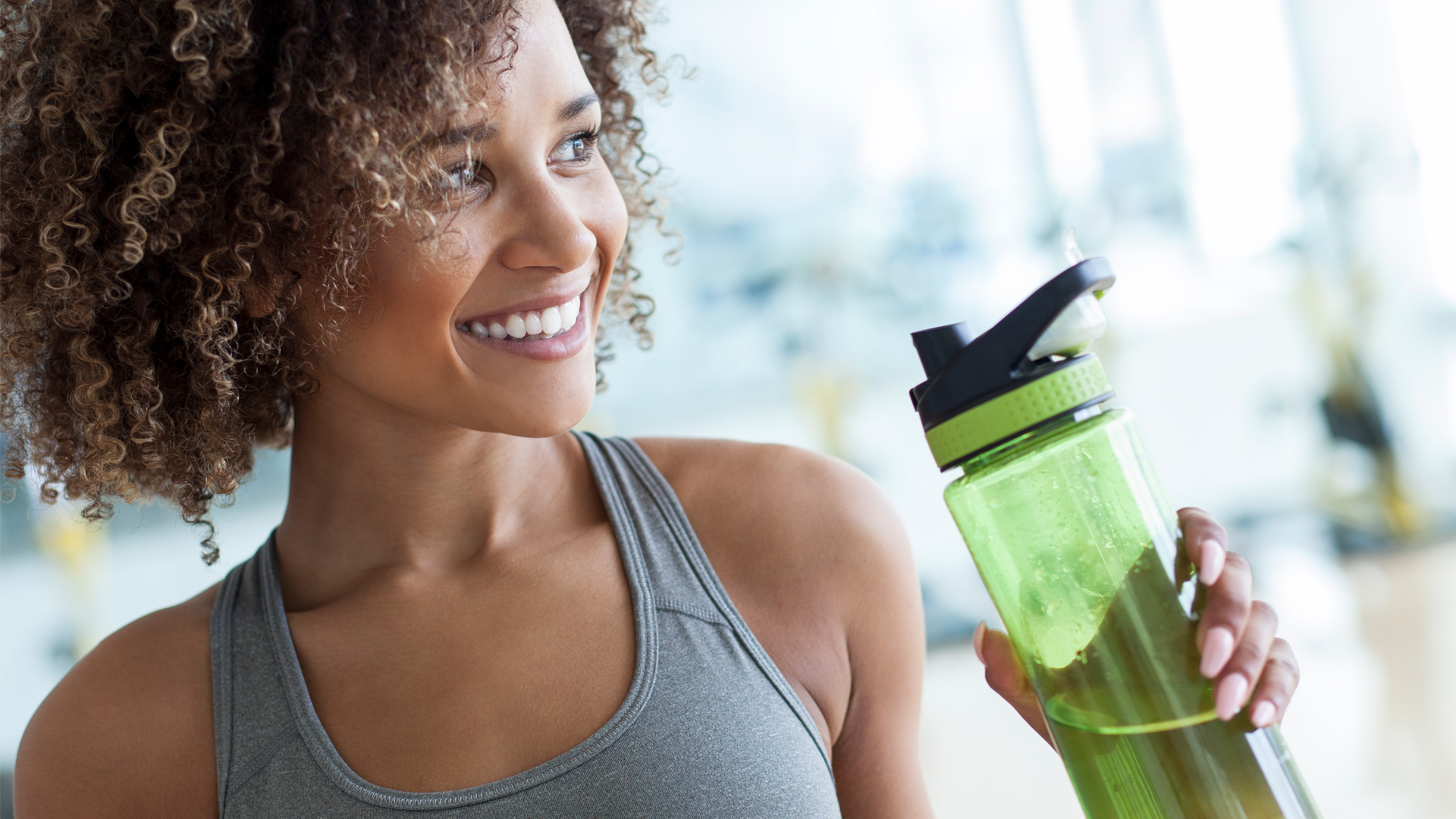What causes chapped lips?
Find yourself constantly reaching for the lip balm? You may be wondering, what causes chapped lips?

The feeling of rough, sore, raw lips is unpleasant, but understanding what causes chapped lips should help you find a soothing solution. Chances are you may be out running errands when you suddenly feel the desperate need for that lip balm. Or, you may be applying lipstick when you realize that your lips are so dry they are beginning to crack. Keeping your lips moisturized with a balm or lotion helps, but the best way to resolve the issue is to get to the root of the problem.
Chapped, dry lips often occur in dry climates, which is why many people search for the best humidifiers to solve the issue. However, they can be caused by a range of issues, including diet, medical conditions, dehydration, environmental factors and more. If you're getting fed up with always reaching for your lip balm, you've come to the right place. Here, we’ll look at the various causes of chapped lips before offering tips on how to bid farewell to chapped lips for ever.
Causes of chapped lips
Chapped lips can happen to everyone, though if you experience chapped lips frequently it may be a sign of a dietary deficiency or of a condition, such as dehydration.
“Multiple factors can cause chapped lips such as very dry and or hot weather, salt water, too much sun, dry air indoors from central heating, very cold weather, over licking your lips and touching them,” says Joyce Carslaw, founder of Smart Ass Beauty. “The lack of oil glands in your lips can also be a factor and this can be made worse by the use of certain lipsticks (especially the stay-put ones) as they contain harsh chemicals,” she adds.

Sharin Shafer, founder of Skinfluencer, says: “The skin of your lips is thin and delicate, so dry air and sun exposure can easily damage it. Many of us don't drink enough water or eat enough fresh vegetables and fruit, which are high in liquid so lips can easily dehydrate leading to chapping.”
There are several medical conditions that can result in chapped lips. Cheilitis, for instance, is a condition that is usually caused by sun exposure that results in extremely chapped lips and sometimes in lesions in the lips.
Thyroid disease can also lead to dry mouth, or xerostomia, and chapped lips in about half of all cases, according to a 2016 study in Nuclear Medicine and Molecular Imaging. A vitamin B12 deficiency can also lead to chronic chapped lips.
How to treat chapped lips
If you have chapped lips, it's important to get to the root of the problem. If you have a medical condition, for instance, lip balms may help, but will not solve the underlying issue. Carslaw says: “If it’s due to lip-licking, then you need to make habitual changes to stop the practice. If it’s due to cold, windy or dry weather, then certain balms and ointments can help protect the lips.”
The first step is to make sure you aren't dehydrated. “Drinking adequate amounts of water can help because this helps prevent dry skin in general,” says Carslaw.
Once you've increased your water intake, begin looking for a good lip balm. Carslaw recommends a “bland, non-irritating, unflavoured lip balm.”
Shafer agrees. “Popular lip balms often contain additives which can make the balm smell or taste nice or soften the feel when it rubs against the lips,” she says.

“But in many cases, these compounds provide the feeling of immediate relief on the lips but don’t actually help with the barrier function. And in some cases, they can become irritants and even worsen the dryness.”
Choose a lip balm with natural ingredients and no added alcohols or fragrances. Good ingredients to look out for include lanolin, vitamin E, beeswax, almond wax, grapeseed oil, jojoba oil, and hyaluronic acid.
How to prevent chapped lips
The best way to prevent chapped lips is to find out what is causing them in the first place. If you think you have chronic chapped lips visit a doctor, who may be able to prescribe medication.
If your chapped lips are less serious, there are simple preventative measures you can take.
Ensure that the air in your home isn't too dry. Getting a humidifier can help to replenish moisture in the air if you live in a dry climate or are constantly blasting out the air conditioner in the summer.
You can prevent chapped lips by staying hydrated throughout the day. Try to drink water whenever you feel thirsty and up your water intake after a tough workout.
Eating a balanced, healthy diet filled with fruits, vegetables, and foods that contain B vitamins can also help to prevent dry lips.
Sign up for the Live Science daily newsletter now
Get the world’s most fascinating discoveries delivered straight to your inbox.

Meg Walters is a freelance journalist and features writer. Raised in Canada and based in South East London, Meg covers culture, entertainment, lifestyle, and health. Her work has appeared in Cosmopolitan, i-D, Refinery29, Stylist, GQ, Shondaland, Healthline, HelloGiggles and other publications. When she's not writing, Meg is probably daydreaming about traveling the world, re-watching an old rom-com with a glass of wine, or wasting time on Twitter, where you can follow her @wordsbymeg.










